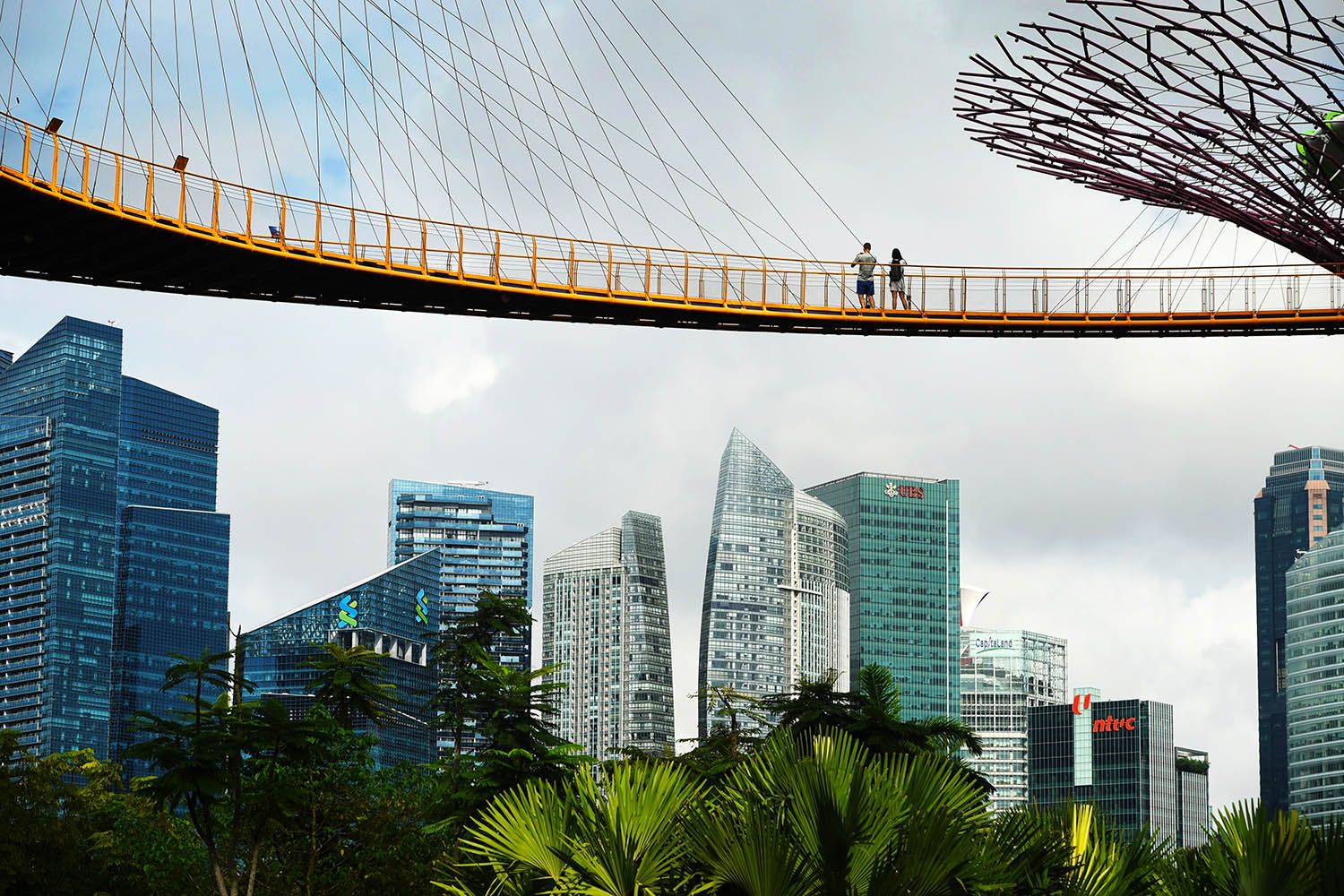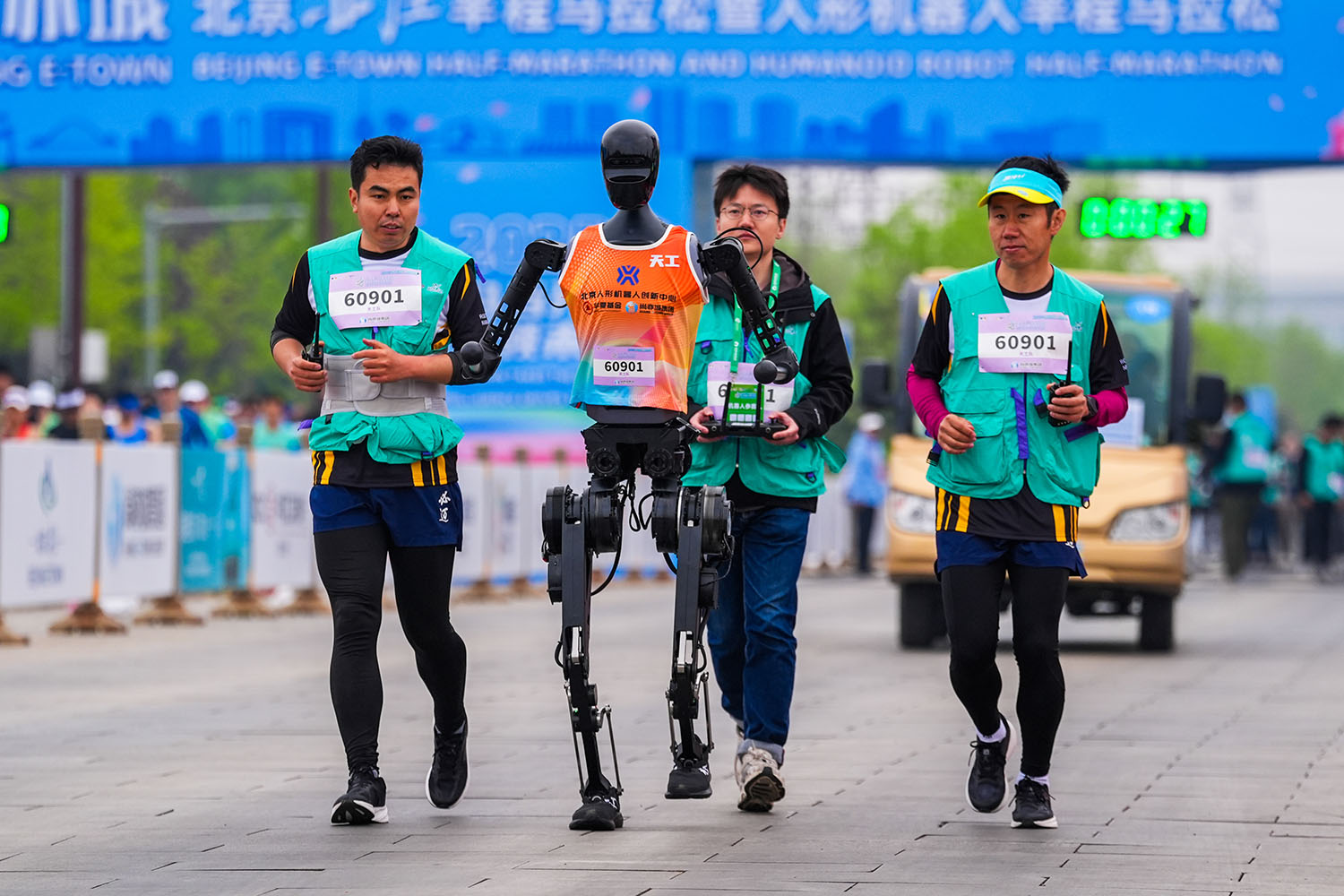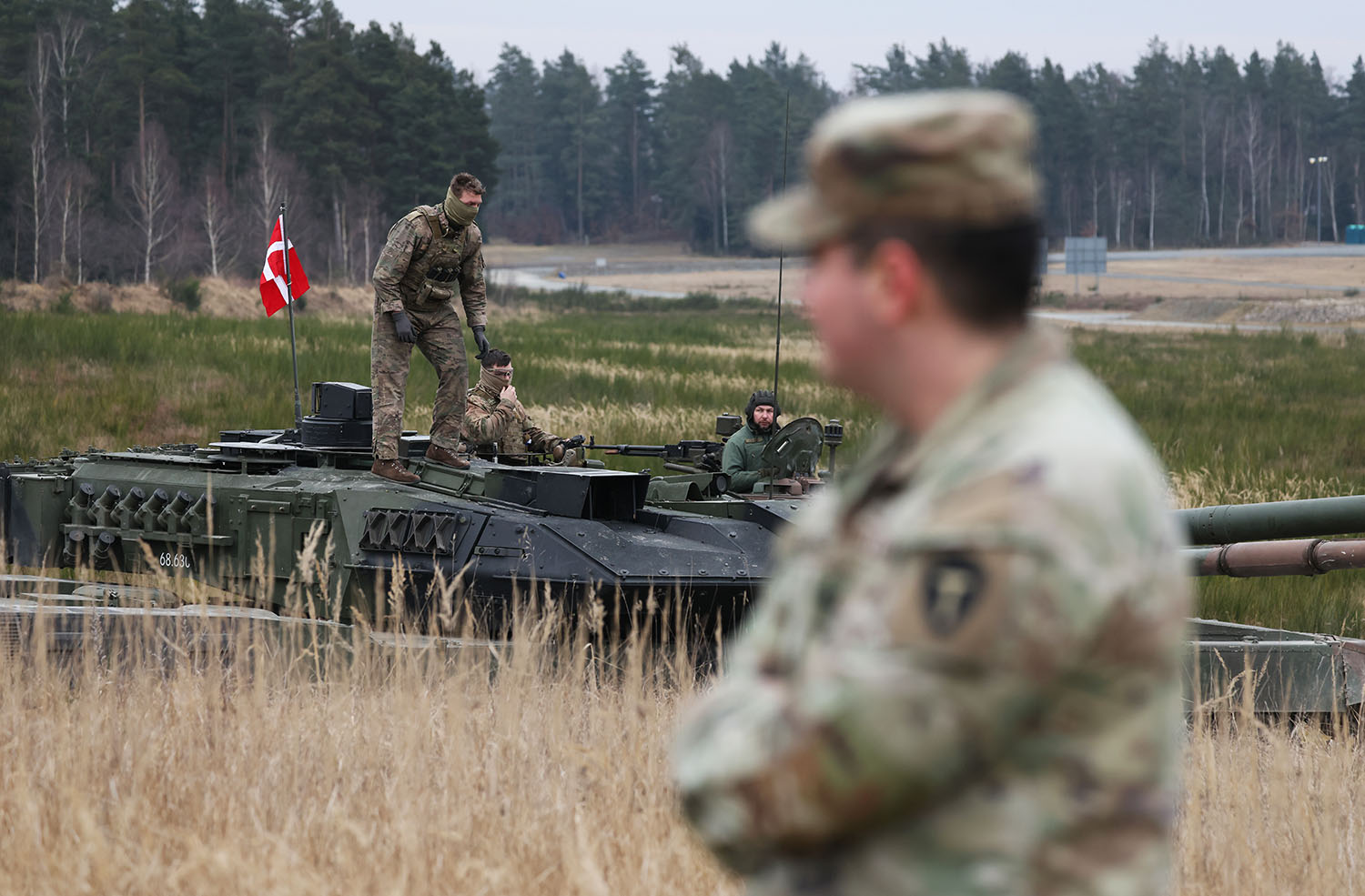
Singapore’s performance on artificial intelligence is impressive - and it’s done it without picking sides in the US-China rivalry.
- The Court of Appeal said Britain’s plan to send asylum seekers to Rwanda was unlawful.
- Switzerland vetoed a request to export 96 Leopard tanks to Ukraine.
- Debris from the Titan submersible was unloaded at a port in Canada.
Singapore jumped to third place in the latest edition of Tortoise’s Global Artificial Intelligence Index, pushing the UK down to fourth and sharing the podium with the big AI players – America and China.
So what? For a country of 5.4 million people with an economy 2.2 per cent the size of China’s, Singapore’s performance on artificial intelligence is impressive. And it’s managed it without picking sides as artificial intelligence become a frontline in US-China rivalry.
By the numbers:
18 – factor by which Singapore’s R&D spending on AI in relation to GDP exceeds that of the US.
270 – active AI startups hosted by Singapore (more than three times as many as in Ireland, a country comparable in population and size of economy).
1 – Singapore’s global rank in per capita contribution to AI research papers (the UK ranks 12th).
24 – Singapore government initiatives targeting AI literacy, data and machine learning infrastructure, AI governance and international collaboration.
Thriving between superpowers. Many countries are making a choice on which economic superpower to back in the AI race – the Netherlands restricted chip exports to China in March after pressure from the US. But Singapore’s economy needs both.
The US and China are the two largest investors in Singaporean AI companies, contributing an estimated 29 per cent and 26 per cent respectively of total foreign investment from 2017. Foreign investment itself makes up 82 per cent of total investment in AI startups in Singapore.
Tread softly. Singapore has managed it with a strategy based on neutrality and caution. Last year, Singapore’s foreign minister boasted of high levels of trust with both the US and China, though “we make it clear to both that we will not be a proxy, vassal state or a cat’s paw for one side or the other”.
One AI expert says that, with AI and in other sectors like electric cars, Singapore is “never the first to market but when it does, it does it well”.
It helps that Singapore has a relaxed attitude to artificial intelligence regulation when compared to its peers, while its status as an “illiberal democracy” – it holds elections but the ruling party never loses – makes sure the government’s proposals have very limited pushback.
Other climbers. Singapore is not the only small country in the index which has rapidly bolstered its AI credentials.
- Israel ranks third on investment, with 4.8 per cent of global AI private funding going into Israeli AI companies in 2022 ($2.5 billion). China’s share was 10 per cent.
- Switzerland ranks fourth on innovation, especially for contributions to open-source AI ecosystems.
- Finland ranks fourth on operating environment, with high levels of public trust in AI and advanced infrastructure.
Lessons for the UK. Singapore’s rise to the top of the Tortoise Global AI Index doesn’t mean AI investment in the UK is falling – but it hasn’t grown fast enough.
The UK still has an edge in AI research and talent and in the quality of its commercial ecosystem for AI. Between 2013 and 2022 it took in $12.9 billion in AI investment, the third highest worldwide behind the US and China.
But the UK lags on AI innovation – especially on AI patents filed and granted at the national level, which are used to measure the development of new techniques and advances. Can Rishi Sunak turn the UK into the “home of AI regulation” while reaping the possible benefits from the sector?
At yesterday’s index launch, held in the Tortoise’s London newsroom, experts were cautiously optimistic. “The UK definitely punches above its weight,” said Katherine Holden, head of data analytics and AI at techUK. “The interest in AI has ramped up to an unprecedented scale.”
Further reading: Europe falls behind in AI, the latest from Tortoise’s Tech States Sensemaker.








